If your dog is looking around frantically, it can certainly cause a fair amount of concern. What’s going on in that little head of theirs? Are they okay? Should you be worried? What can you do about it? In this guide, we’re going to explore the most common reasons why your dog may be looking around frantically, as well as provide some recommendations on how to handle the situation.
Table of Contents
- Why Is My Dog Looking Around Frantically: Introduction
- 10 Reasons Why Your Dog Is Looking Around Frantically
- What To Do If Your Dog Is Acting Strange And Looking Around?
- How To Treat Canine Compulsive Disorder Or CCD In Dogs?
- Why Is My Dog Looking Around Frantically: Frequently Asked Questions
- Why Is My Dog Looking Around Frantically: Final Thoughts
Why Is My Dog Looking Around Frantically: Introduction
The joys of being a pet parent far outweigh the worries and concerns that come with it. Our canine pals are a source of so much love, loyalty, laughter, and wonderful moments. But with this huge responsibility of being a dog owner also comes the pressure of potential medical concerns and behavioral issues.
If your dog is acting strange and looking around, it might seem like nothing at first. However, if the issue persists, it could indicate that there’s an underlying medical concern that needs to be dealt with. Or the very least, a behavioral issue that you should most definitely take seriously.
Either way, knowing how to spot the signs and taking quick action is key. If your dog looking around frantically is caused by a behavioral issue, you’ll most likely be able to nip the problem in the bud if you do something about it fast. Likewise, if the issue is caused by a medical concern, the sooner you take action, the better the prognosis for your precious pup.
So, why is my dog looking around frantically? Let’s find out!
10 Reasons Why Your Dog Is Looking Around Frantically
Is your pup constantly looking around anxiously, as if they are searching for something? If so, there could be several possible explanations for this behavior. In this section, we’ll explore some of the most common reasons why your dog is looking around frantically. Let’s get into it!
Separation Anxiety Or Stress
“My dog is looking around restlessly for something! What’s it about?”
It’s a common issue when a dog is suffering from separation anxiety or stress. This is especially true for rescue dogs that may have endured a traumatic previous experience in their life. However, that’s not always the case, as some breeds are more prone to separation anxiety. Or, they’re simply more sensitive to certain changes in their environment and home life, such as a divorce or a death.
The most common symptoms of separation anxiety and stress in dogs include barking, howling, digging, chewing, and urinating when separated from their owners. If a dog is feeling stressed out, they’ll exhibit very similar symptoms, mainly the destructive behaviors, accompanied with whining and pacing. If you notice any of these signs, then your pup may be feeling anxious or stressed out.
To help your dog deal with these emotions, there are a few things you can do. Firstly, you want to make sure that your pooch gets plenty of physical and mental stimulation. Think of long walks, exercise in the dog park, playing fetch, training, and also utilizing fun puzzle games and interactive toys. You want to make sure that your pup gets to express all that energy and put their brain to good use. They’re intelligent creatures, after all!
In addition to that, you want to make sure that your pup has a healthy, loving, and safe home environment to thrive in. In stressful situations, you might find calming treats and relaxing music helpful. Another thing we strongly recommend is the crate training method – creating a safe haven for your pup to relax and recharge in. And needless to say, don’t forget to spoil your pooch with all the kisses, cuddles, and bonding time with you.
Fear
Certain situations could also be frightening and overwhelming for your pup, causing your dog to act strange and look around as if they’re trying to make sense of what’s happening. Some signs of fear in dogs include cowering, tail tucking, trembling, and excessive panting.
Although dogs are known to be fearless, this doesn’t mean that they never become scared. Your pup may be scared of unfamiliar objects, especially if you haven’t gradually introduced the objects to them over time. For instance, a dog might even become fearful of a grooming brush if they’re not used to being brushed.
Additionally, strange smells, new environments, sounds, and even meeting new people can sometimes be scary for some pups. That’s why early socialization with people of all ages and other pets, as well as household desensitization are so vital. This way, your pup can get accustomed to all sorts of new situations, sights, and sounds from an early age.
In order to determine whether fear is the underlying issue behind your pup’s frantic searching, you have to pay close attention to your dog’s behavior and figure out what triggered it. Were there loud noises or fireworks nearby? Or have there been any changes in the environment that could’ve made them feel less secure? This way, you can figure out exactly what’s triggering the behavior, and start desensitizing your pup with positive reinforcement methods.
Sensitive Hearing
“My dog keeps looking around the room, but there’s nothing to panic about!” If your dog is looking around frantically, it could also be due to the simple fact that they’re hearing something that our human ears could never pick up. As you probably know, dogs have highly sensitive hearing, which can make them particularly alert and aware of their surroundings. This will certainly come in handy when there’s a potential threat looming.
Of course, this sensitivity can cause a dog to look around frantically if they hear something that stands out from the background noise. In fact, dogs can hear sounds as high as 65,000 Hz, whereas humans cannot hear anything above 20,000 Hz. Likewise, dogs can also hear sounds that our ears won’t ever be able to pick up. So, even sounds that are too faint for us will likely grab their attention. (Source)
Fortunately, if your dog’s reaction is caused by hearing something that you don’t, there’s a very simple solution – join in on the inspection and try to calm your pup in the process.
Age
As dogs age, their senses of smell and hearing may become weaker. Similarly, it’s not uncommon for elderly dogs to struggle with joint problems and other uncomfortable ailments. Obviously, all of these physical changes can cause confusion and disorientation, which often manifests in pacing.
Additionally, aging dogs are more likely to develop cognitive issues, such as dementia or anxiety. In fact, some studies show that about 68% of dogs over the age of 15 suffer from some type of cognitive impairment. (Source) So, it’s not really uncommon for elderly dogs to suddenly become fearful and anxious in familiar situations or around people they know. Likewise, familiar sounds and smells can also cause anxiety and stress in those golden years.
To ensure your elderly pet is feeling safe and secure it’s important to provide plenty of mental stimulation, a comfortable and familiar home environment, and regular check-ups with the vet. Although there’s no treatment for canine dementia, you can at least make sure to provide your pal the most beautiful final years with proper support and care.
Seizures Or Epilepsy
Looking around and pacing frantically can also indicate that your dog has just suffered from a seizure or an epileptic episode. A seizure is an episode of intense, involuntary muscle spasms and jerking movements, while epilepsy is a condition caused by an underlying neurological issue illustrated by repeated seizures.
After a seizure, dogs may appear confused, disoriented, and scared, causing them to look around in panic. Regardless, you should contact your vet as soon as you witness your dog experiencing a seizure or suspect that they just had one. Only a veterinarian will be able to determine the root cause of the seizure, and prescribe the best possible treatment for your pup.
Nystagmus
Nystagmus is a neurological disorder characterized by involuntary eye movements. Surprisingly, this condition can cause a dog to look around frantically. Nystagmus causes the eyes to move rapidly (or extremely slowly) and uncontrollably in various directions. Oftentimes, this condition is accompanied by blurred vision, motion sickness, and loss of coordination. Consequently, this disorientation can lead to fear and confusion.
In order to diagnose nystagmus, your vet will need to perform a series of tests including an eye exam, blood tests, and possibly a CT scan. By the way, nystagmus can also be caused by other medical conditions, such as vestibular disease – we’ll talk about this condition a bit later on in this guide.
Drug Intoxication
If your dog is looking around frantically, you may have to consider the possibility of drug intoxication. When a dog has ingested a drug, either intentionally or unintentionally, they may experience confusion, disorientation, anxiety, agitation, and aggression. Of course, this can lead to panic behavior.
If at any point you suspect that your dog has gotten hold of your medications or drugs, it’s crucial that you seek veterinary care immediately. The sooner you take action, the more likely it is to get proper treatment for your pup in a timely manner.
Furthermore, it’s vital that you’re aware which substances may be toxic for them, so that you can take proper precautions in order to avoid any unfortunate accidents. You’ll want to keep any medications safely in drawers and cupboards, out of reach from your pet. In fact, even many house and garden plants, as well as certain human foods can be extremely harmful for our four-legged pals.
Hallucinations
As you can probably guess, hallucinations can cause severe confusion and distress. So, if your dog is looking around at nothing, they may be seeing something that you don’t. Think of it this way – how confused would you be if you didn’t understand what’s going on?!
Needless to say, if your dog is experiencing hallucinations, it’s important that you contact the vet ASAP. As hallucinations are often caused by an underlying medical issue, such as the Fly-Snapping Syndrome, epilepsy, or something else altogether, immediate medical care is vital.
Of course, it might be difficult to understand whether or not your dog is actually experiencing hallucinations. But that’s why it’s so important that you know your pup’s behavior well, so that you can detect any changes and take action as soon as you notice that something’s off with their behavior.
Fly-Snapping Syndrome
Fly-Snapping Syndrome, also known as Fly-Biting Syndrome, is a rare neurological condition. Nonetheless, it’s one possible cause for frantic behavior. The most obvious symptom of this syndrome is quite literally fly-snapping. In case of Fly-Snapping Syndrome, a dog will twitch their head rapidly and make snapping movements as if they’re trying to catch a fly. Although your dog will stay fully awake, they’re still considered partial seizures.
The exact cause of Fly-Snapping Syndrome is still unknown, but there are a few possible causes for this. These include gastrointestinal diseases, neurological disorders, eye substances that manifest as spots, and even obsessive compulsive disorder (OCD), also known as canine compulsive disorder (CCD).
Again, if you notice the fly-snapping behavior with no flies in sight, it’s best if you contact your vet in a timely manner. Only they’ll be able to properly diagnose and treat your pup.
Vestibular Disease
We mentioned earlier that vestibular disease can be a cause for nystagmus in dogs. But what is vestibular disease, anyway?
Vestibular disease is an inner ear disorder that results in a disruption of the vestibular system. This is the part that’s responsible for balance and spatial awareness. Symptoms generally include head tilting, nausea, loss of balance and coordination, circling, and nystagmus. Due to the nausea, a dog might also lose their appetite.
If you notice any of the symptoms, you should contact your vet as soon as possible. Vestibular disease can be caused by a variety of other issues, such as hypothyroidism, trauma, tumors, drug intoxication, and infections.
What To Do If Your Dog Is Acting Strange And Looking Around?
As we learned above, if your dog is acting strange and looking around frantically, there may be a few potential causes. First and foremost, it’s important you identify the underlying cause for this behavior. Are there any potential triggers in the environment that your dog might get agitated about? Are you about to leave the house? Has your dog’s overall behavior been different lately?
Learning your dog’s behavior from a young age is vital for you to notice any unusual signs and symptoms early on. In fact, many underlying medical conditions often manifest as behavioral changes. After all, dogs can’t express themselves in any other way than through behavior.
Likewise, noticing any unusual signs early on is vital in case of behavioral issues. If you don’t tackle any sort of behavioral problems early on, they’ll soon become established behavioral patterns that are much more difficult to fix.
To determine if something more serious is going on, take note of your pup’s other symptoms and contact your veterinarian for further advice. They’ll be able to conduct all the necessary tests and scans, and figure out the right diagnosis along with the correct treatment plan for your pup.
If this behavior is due to a behavioral issue, like anxiety or boredom, try providing more mental stimulation with activities like playtime and obedience training. Also, try redirecting their focus away from what they’re obsessing over with fun distractions like treats or toys. As they say, a tired dog is a happy dog, so keep your pup busy and entertained throughout the day.
How To Treat Canine Compulsive Disorder Or CCD In Dogs?
Canine Compulsive Disorder (CCD), also known as obsessive compulsive disorder (OCD) in humans, is a condition that causes dogs to exhibit repetitive behaviors. For instance, chasing the tail, flank sucking, excessive licking, pacing, chewing, or circling, to name a few.
Of course, all of these behaviors are very much natural to dogs. In fact, many of those behaviors can also be down to improper training or inadequate socialization and stimulation. However, if your dog can’t seem to stop and the behavior is downright compulsive, it might indicate that you’re dealing with a disorder. Luckily, there are a few ways you can manage this condition.
First and foremost, it’s important that you monitor your pup’s environment and determine if any triggers may be causing the behavior. For example, limiting their exposure to certain triggers can help reduce compulsive behaviors. Additionally, providing plenty of mental and physical stimulation can also help keep your pup occupied and their mind active. You’ll want to make sure your dog gets plenty of exercise each day, and that they have lots and lots of chew toys and interactive games to play with. Of course, training also helps keep your dog’s brain in good shape.
Nonetheless, if you notice any compulsive behaviors, we strongly recommend you take this up with your veterinarian. As we mentioned already, those compulsive behaviors and other unusual behavioral patterns could mean that there’s a medical issue that’s gone unnoticed. In case of behavioral issues, your vet may ask you to contact an animal behaviorist or a dog trainer. But in more serious cases, your vet may also prescribe a medication to tackle this problem.
Why Is My Dog Looking Around Frantically: Frequently Asked Questions
There are a number of possible reasons why your dog might be acting strange and looking around. Some of the most common causes include behavioral issues, such as separation anxiety, stress, boredom, or fear. However, if your dog is looking around frantically, it could also have to do with aging, seizures or epilepsy, various medical conditions, or drug intoxication. Of course, it could also be simply because dogs have much more sensitive hearing than we humans do.
If your pup is looking around like she sees something, it could be related to medical conditions, such as Fly-Snapping Syndrome or even hallucinations. If this behavior isn’t a one-off thing, you should contact your veterinarian as soon as possible.
As fellow pet owners, we absolutely recommend you to be cautious and rather take immediate action than contemplate whether or not you should be worried. Although dogs act strangely from time to time, it’s vital that you know how to spot any behavioral changes and keep an eye on them. If any changes in your dog’s behavior persist or become worse, it’s best to contact your vet for an assessment.
If your pup is staring at nothing and shaking, it could be a sign of fear, stress, or anxiety. For instance, it’s very common for dogs to become anxious and scared if they hear fireworks, especially during the Fourth of July celebrations or on New Year’s Eve. If that’s the case, you should comfort and reassure your pal, put on some calming music, give them some calming treats, and try to redirect their attention to something more enjoyable, such as toys and other activities.
A dog seizure usually looks like uncontrollable, sudden, and jerky movements. Symptoms can include stiffening of the limbs, paddling or twitching of the legs, drooling, or tongue chewing. In some cases, dogs may lose control over their bladder and bowel movements. They may also display increased sensitivity to noise and light, and become disoriented and confused after the seizure. If you notice any of these symptoms, contact your vet for the right diagnosis and treatment.
Why Is My Dog Looking Around Frantically: Final Thoughts
If your dog is looking around frantically, it could be for a variety of reasons – from stress and anxiety to neurological or physical problems. If your pup’s frantic searching persists, it is important to talk to your veterinarian as soon as possible in order to identify the cause and develop an appropriate treatment plan. However, if this has happened just once or twice throughout your pup’s lifetime, it could simply be because they heard or noticed something fascinating that you didn’t. Hopefully this guide managed to shed some light onto this topic, so that you can be well-prepared and take the best possible care of your best buddy.
Learn How to Care for Your Doodle Puppy!

Perfect for first-time Doodle parents, get ALL your questions answered, including questions new Doodle parents don’t even think to ask.
Plus, get $700 worth of Bonus Materials for FREE, including:- Doodle Parenthood Community and Support Group ($190 value)
- Doodle Puppy Growth Tracker ($20 value)
- EMERGENCY Cheatsheet: When To Call The Vet Immediately ($50 value)
- HELP! Button ($145 value)
- And SO MUCH MORE!

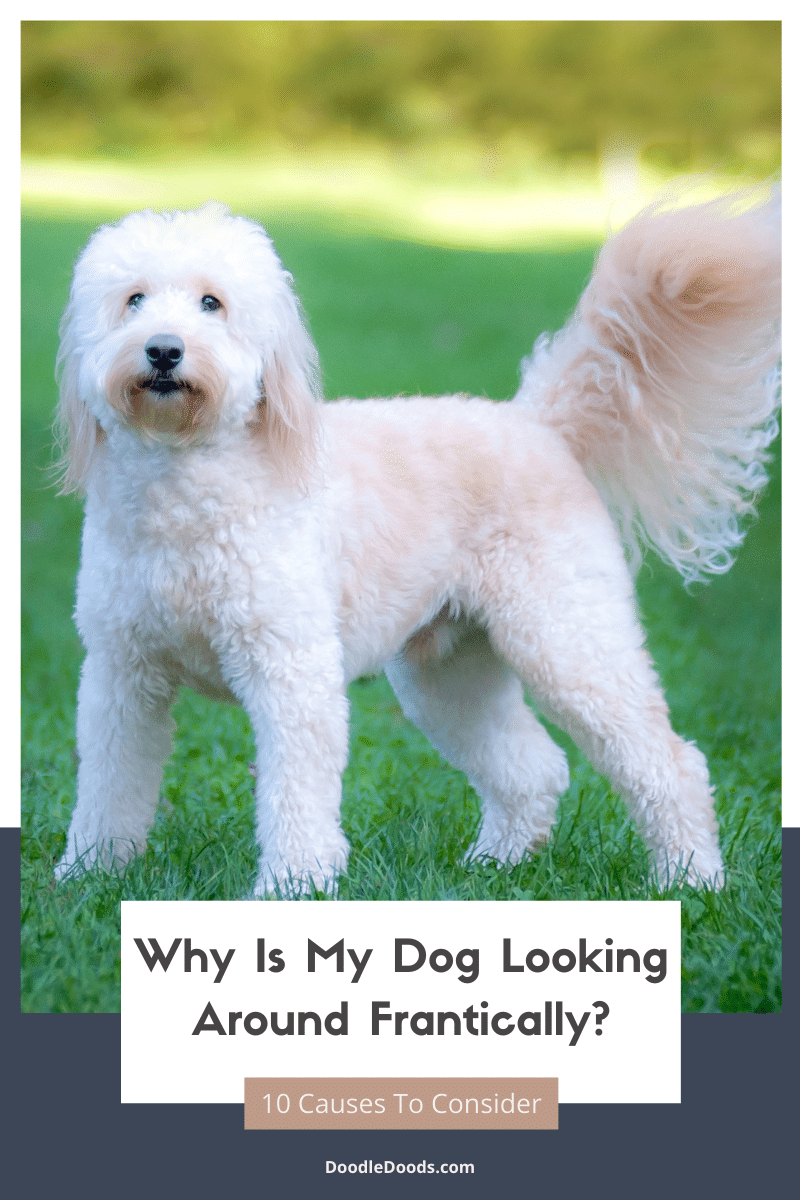


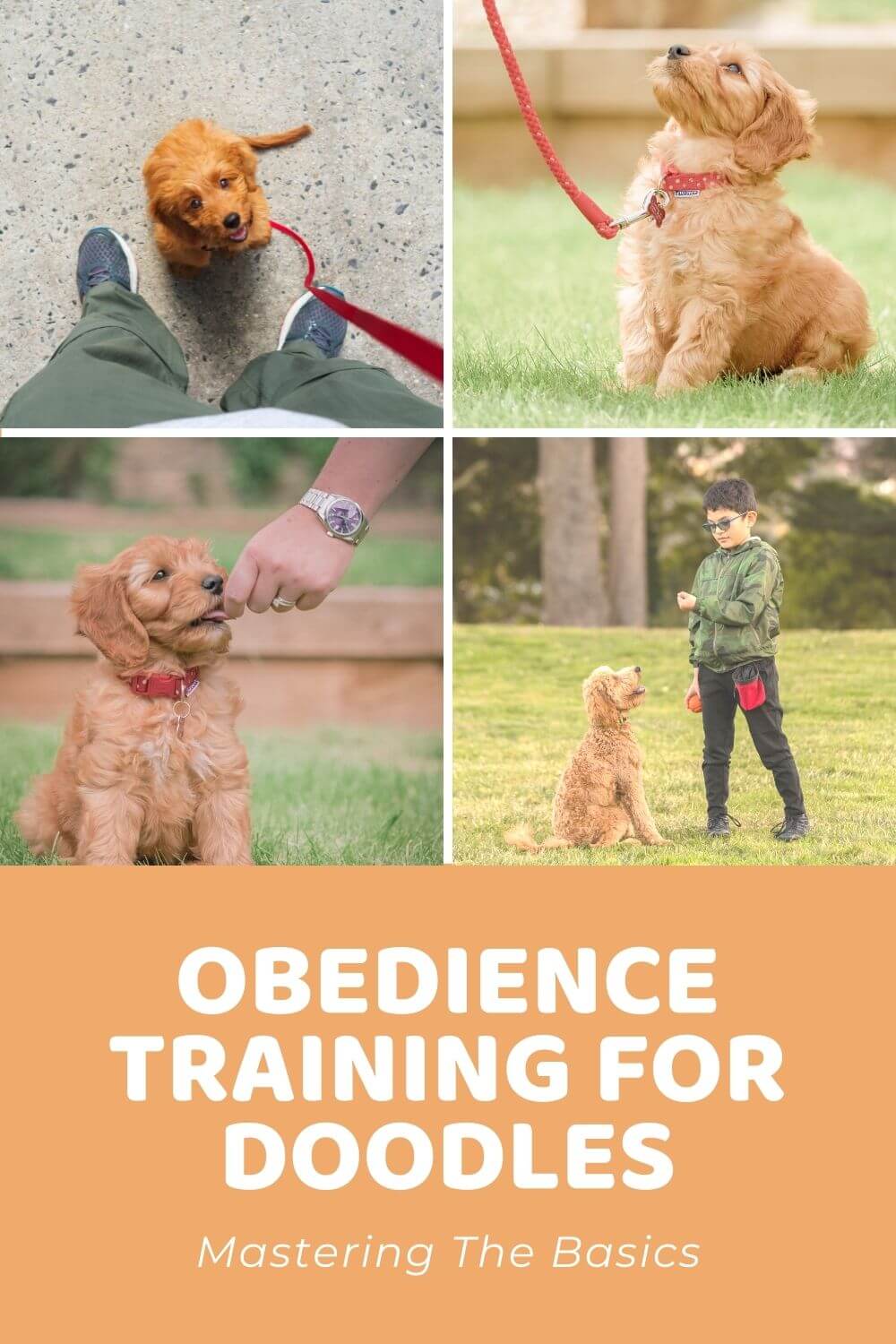
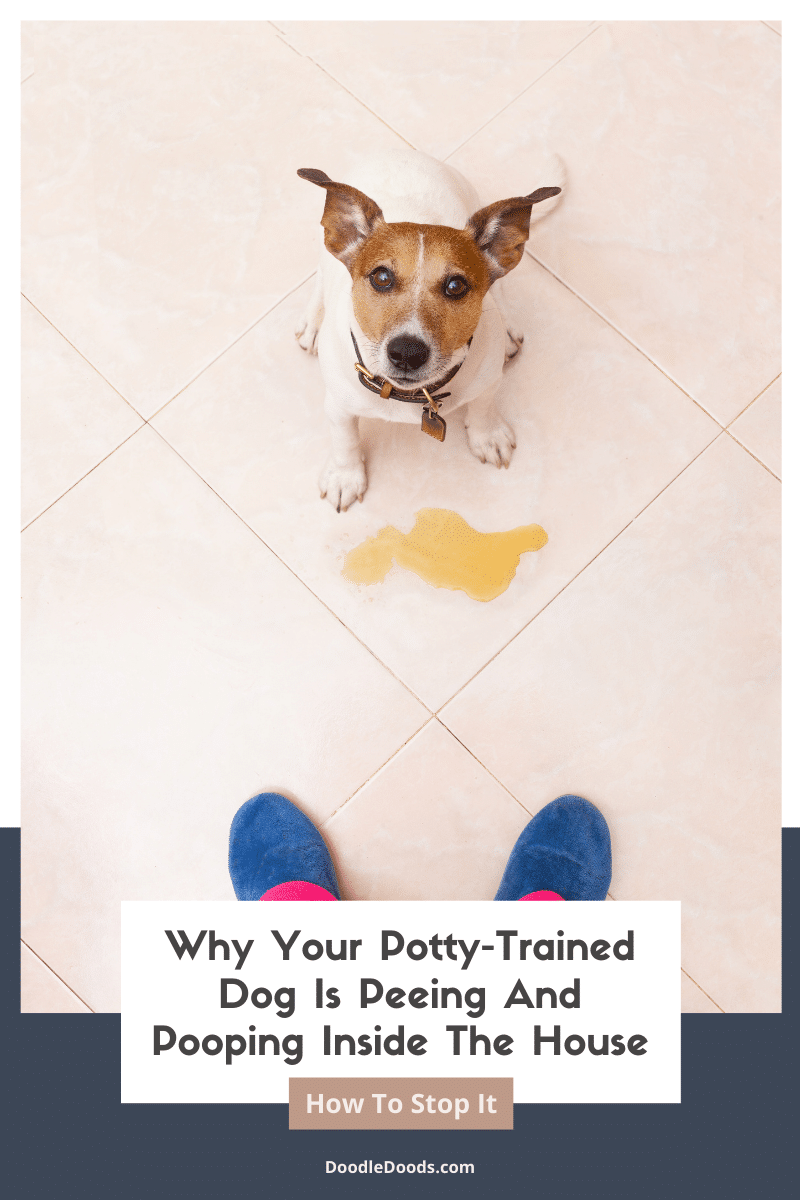

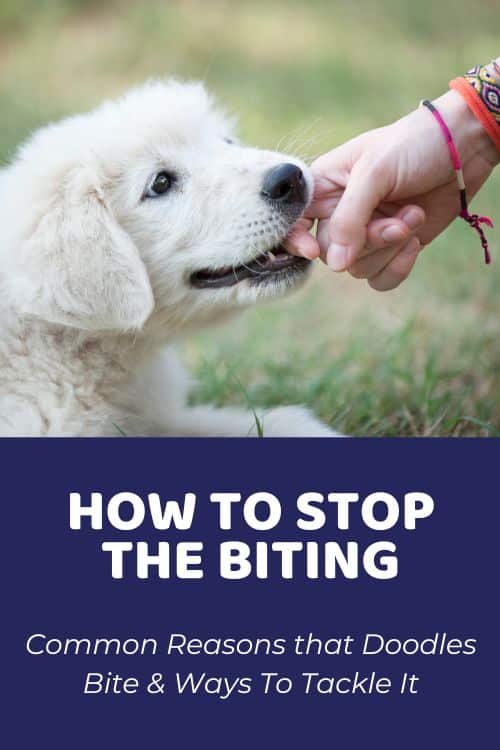
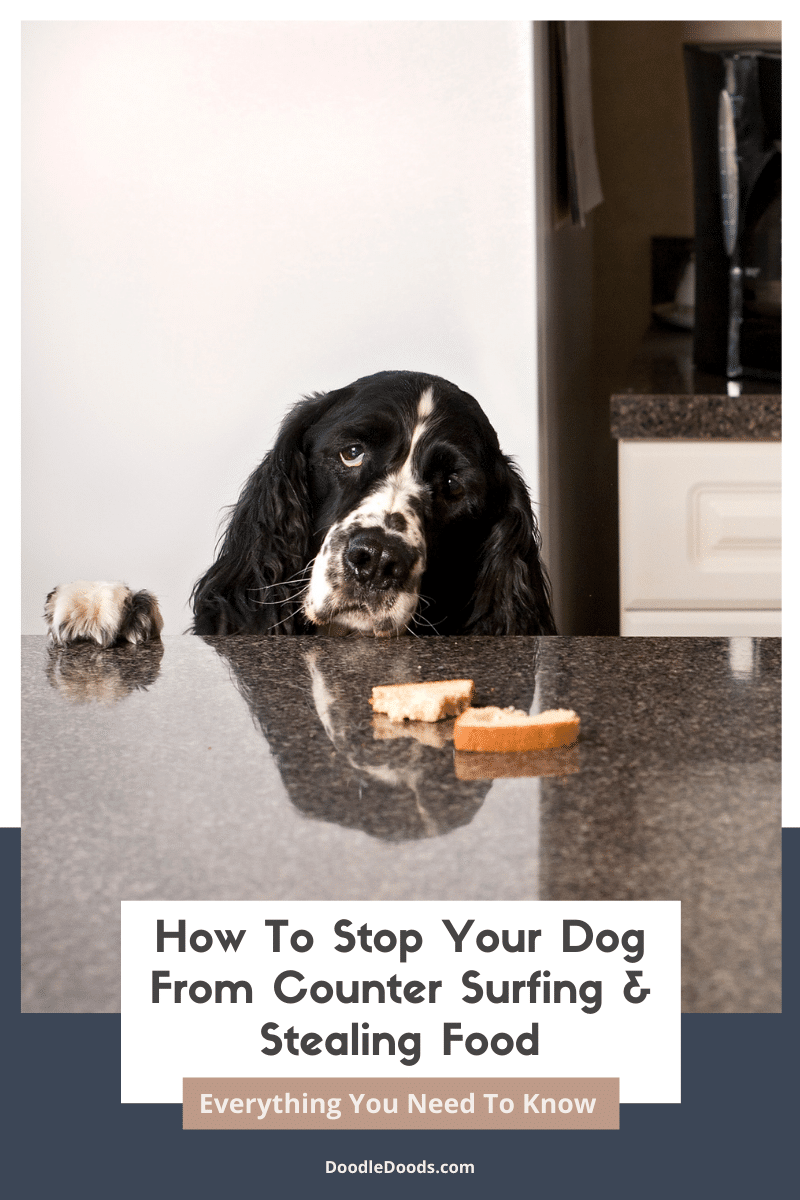
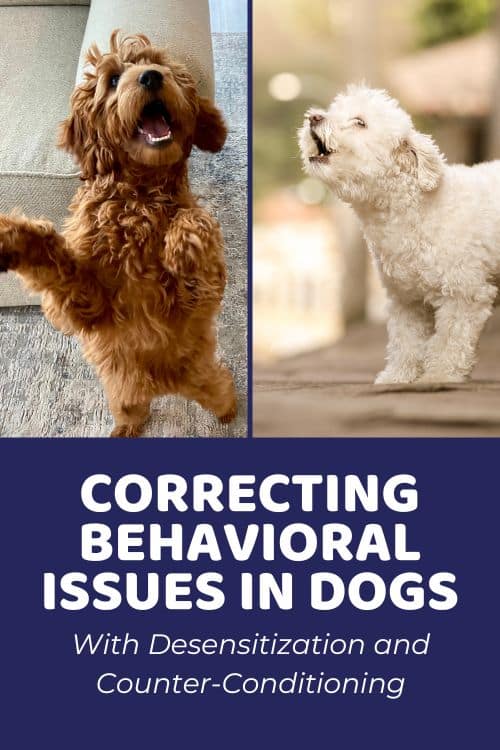

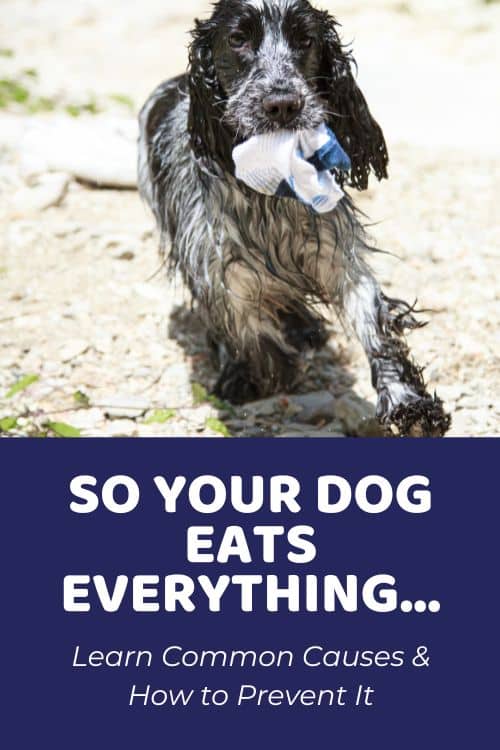
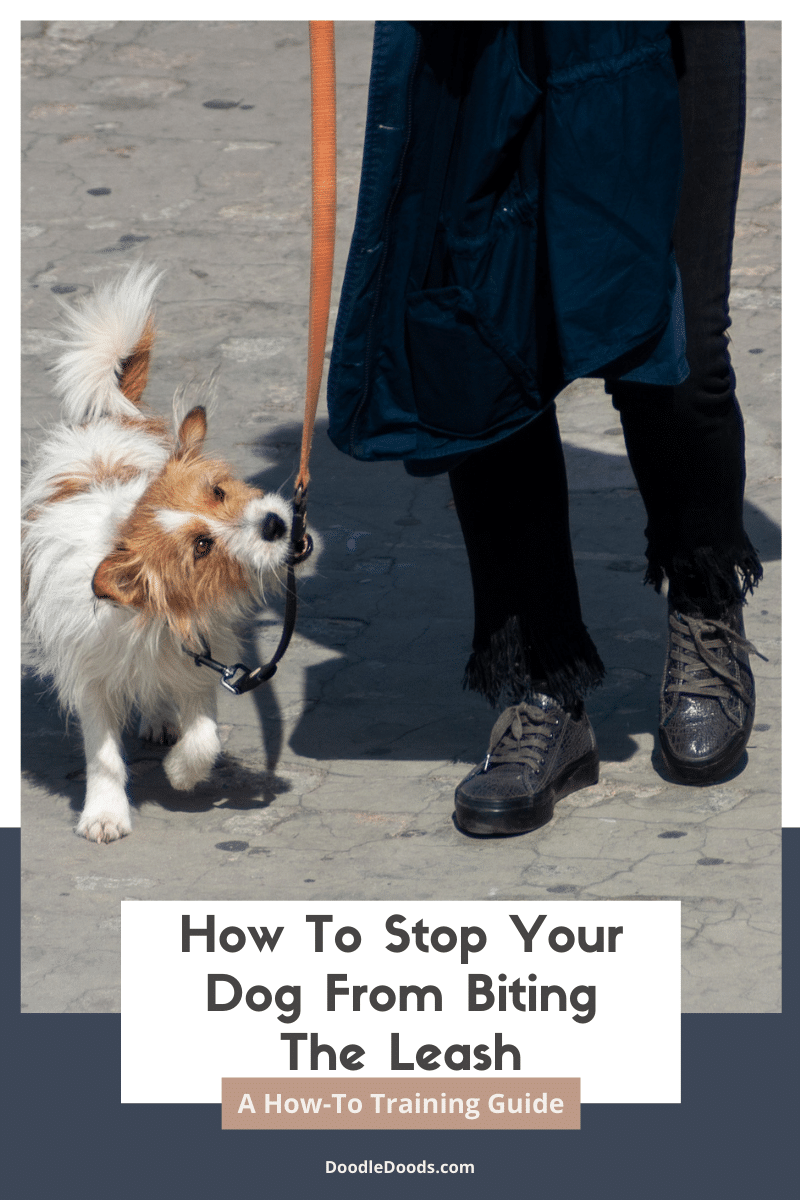
This is the 2nd time in 3 days that my dog appears to be hallucinating and her head is bobbing. Don’t know what to do.
August 7, 2023 at 9:48 amI hope she is okay. Time for a visit to the vet.
August 14, 2023 at 3:05 pm